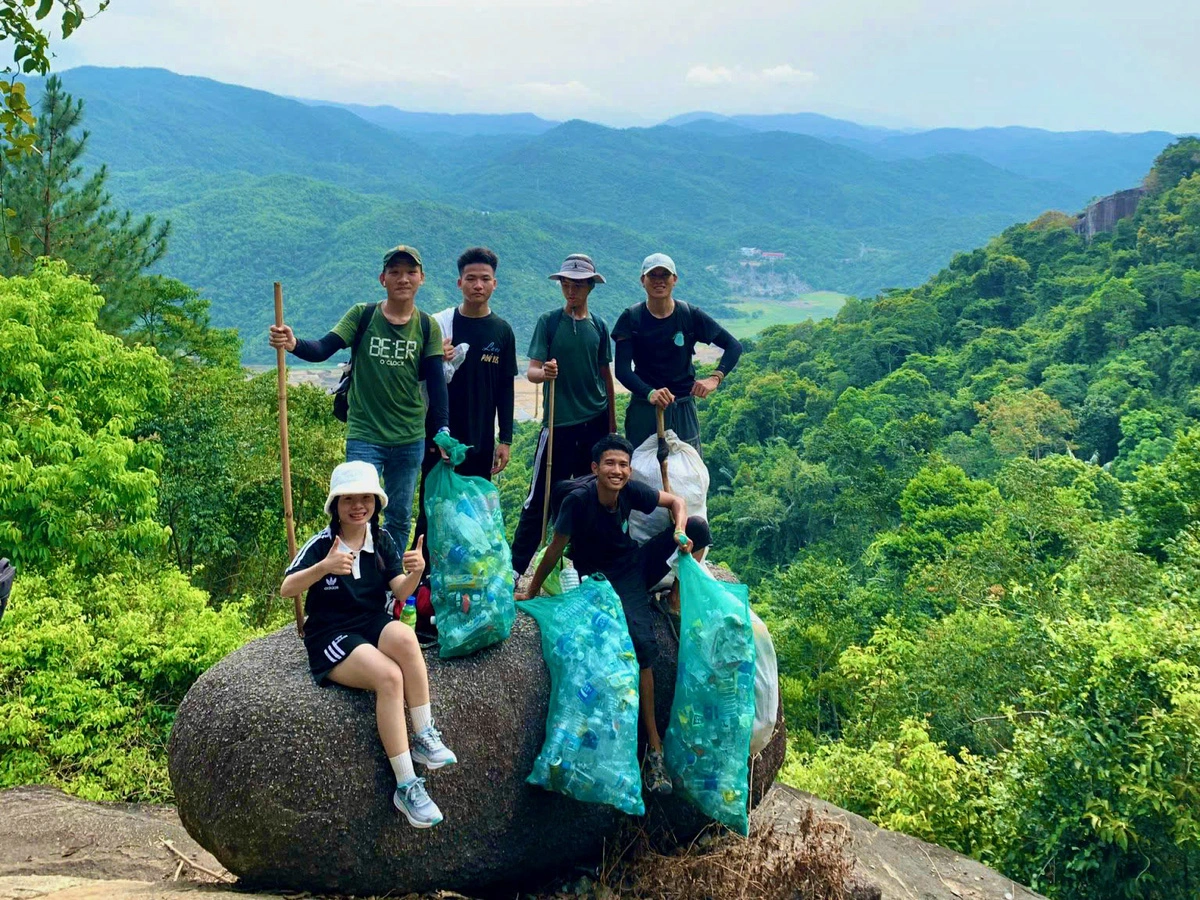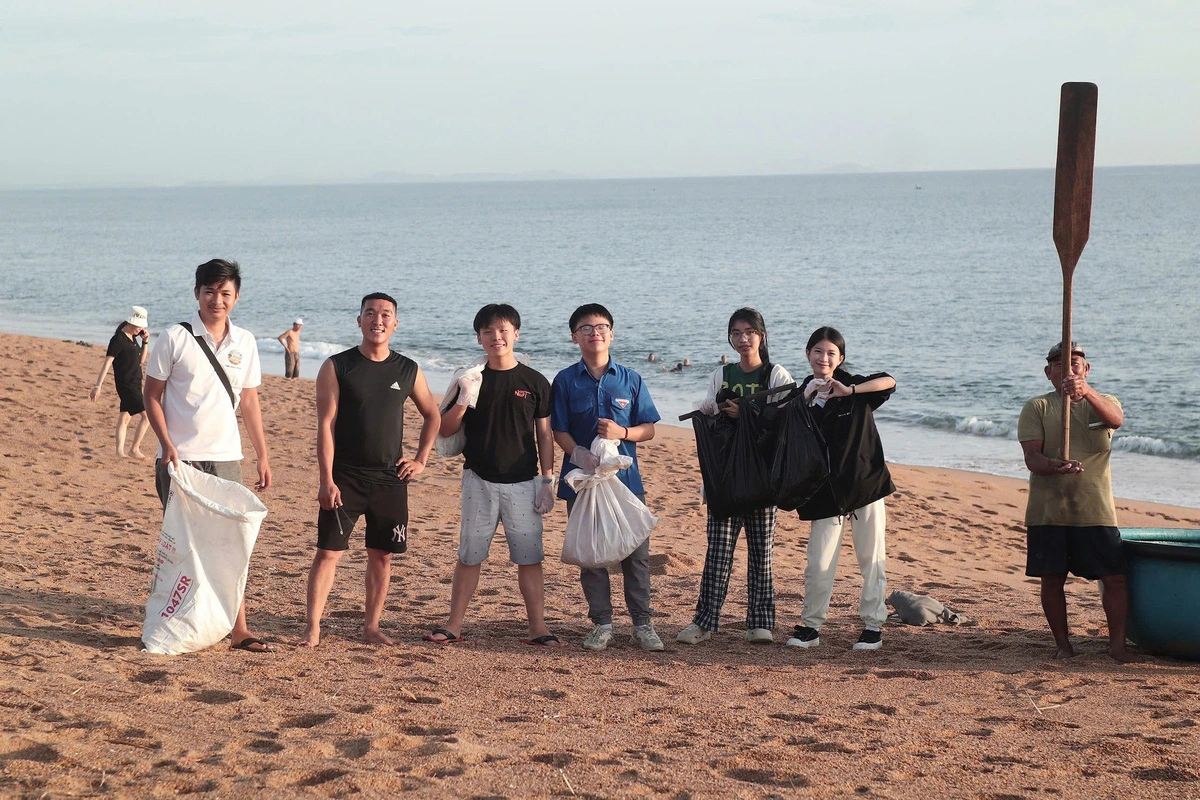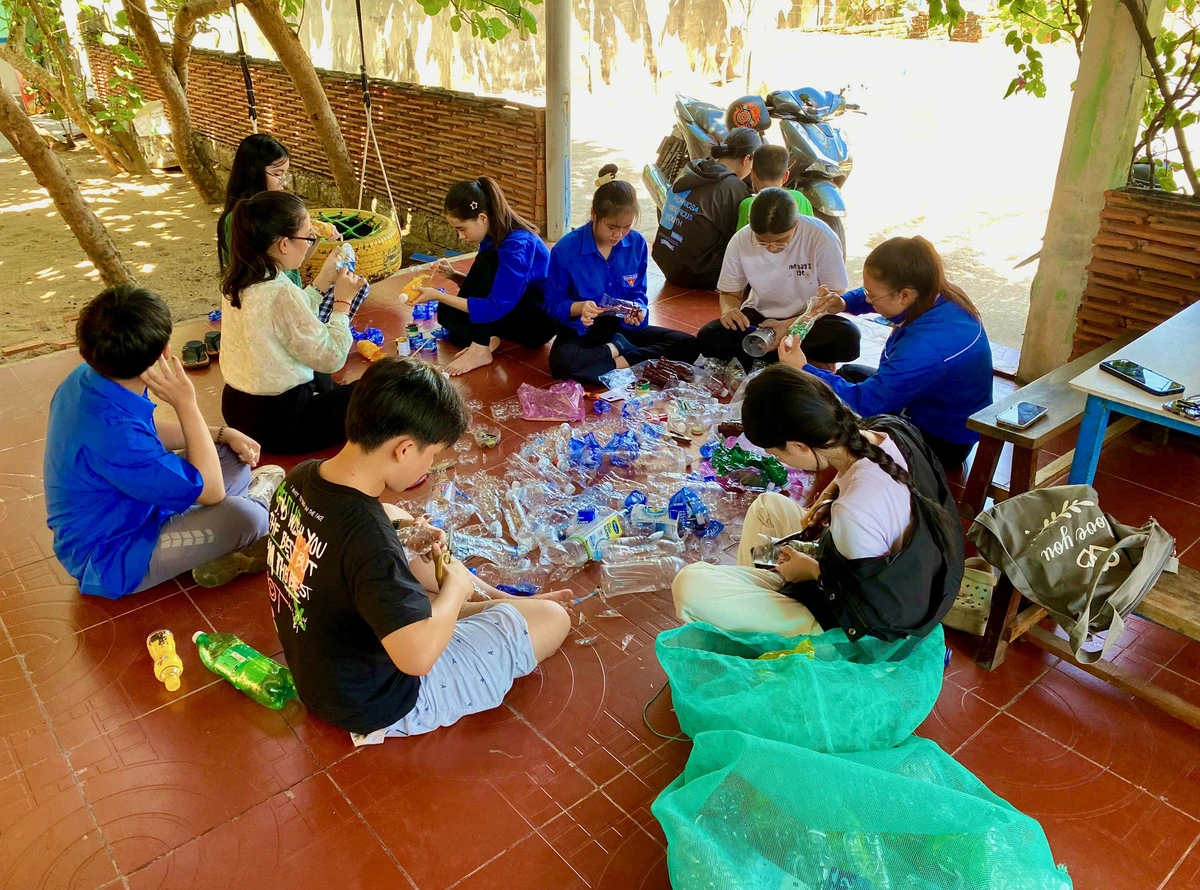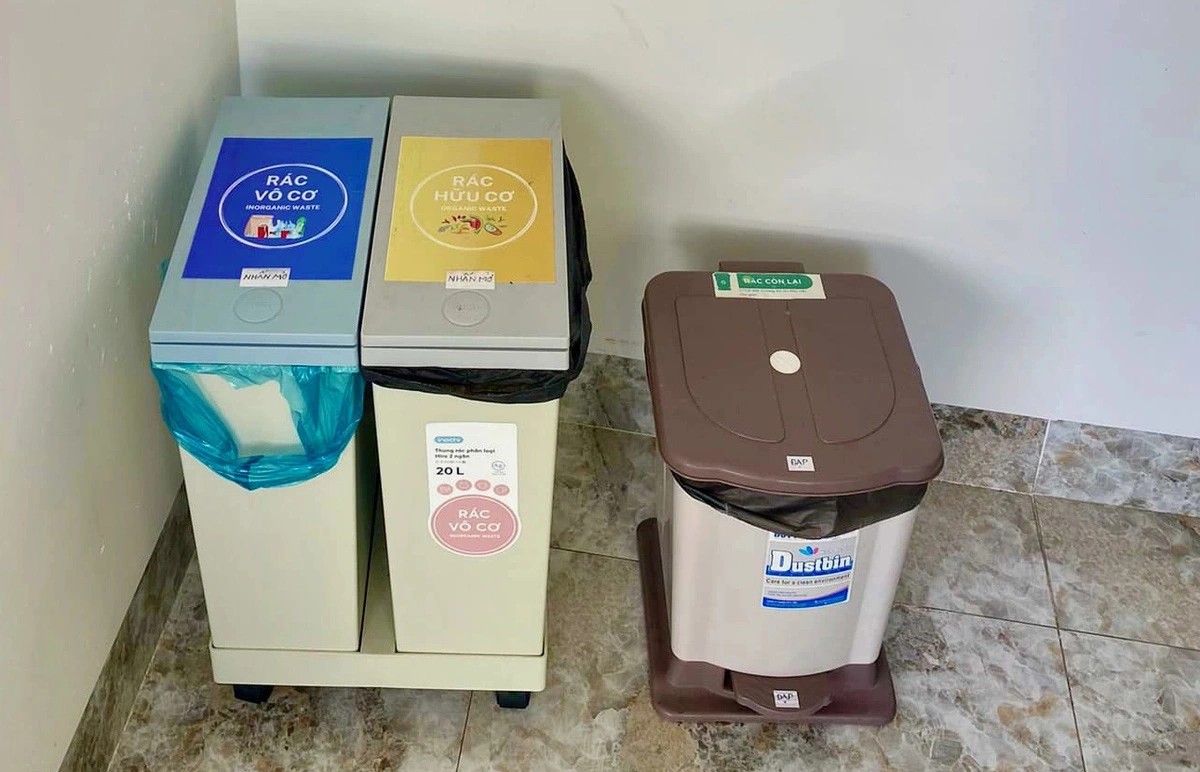Phu Yen Province in south-central Vietnam has been actively promoting green tourism in recent years, with eco-conscious activities such as tree planting and trash collection set against the backdrop of its scenic beauty.
Local businesses and accommodation providers are also contributing by reducing the use of single-use plastics and opting for eco-friendly alternatives, making sustainability a key feature of tourism in the area.
According to the Phu Yen tourism development plan for 2024-30, the province will prioritize ecotourism in association with nature and agriculture, while simultaneously improving public awareness of protecting natural resources and the environment.
|
|
| Tourists collect waste on a beach in Phu Yen Province, south-central Vietnam. Photo: Supplied |
Le Quy Tai, a local tour guide, said green tourism is a sustainable trend.
During his tours, Tai always organizes waste collection and tree-planting activities at tourist attractions.
He also encourages tourists to use environmentally friendly products and limit single-use plastics.
“We have the philosophy of leaving nothing but footprints and taking nothing but photos when visiting destinations in Phu Yen,” Tai said.
His tours to Da Bia Mountain include everyone picking up trash which is then brought monthly to treatment facilities, he added.
His team has also created lanterns for disadvantaged children from found reusable items.
The 23-year-old tour guide added they want to combine green and charity tourism to create a cycle that benefits the planet and community.
|
|
| Young people recycle waste into useful products in Phu Yen Province, south-central Vietnam. Photo: Supplied |
Nguyen Quang Hung, owner of Xom Bien homestay in Tuy Hoa City, Phu Yen Province, has adopted green tourism practices by replacing plastic toiletries with ceramic, glass, and eco-friendly alternatives.
The homestay also labels waste bins clearly for easier sorting and uses organic waste as fertilizer for its garden.
Since implementing these changes, Hung has noticed a significant reduction in waste and increased environmental awareness among guests.
These efforts contribute to a more sustainable and eco-friendly tourism experience.
Le Thi Hoa, a 31-year-old traveler from Binh Dinh Province, a neighbor of Phu Yen, applauded homestays and hotels for arranging trash bins for waste classification, which encourages tourists to put trash in proper places.
Nowadays, tourists not only admire landscapes but also want to experience planting trees, picking fruits, and immersing themselves in nature.
She proposed that Phu Yen tourism authorities require tourists not to bring single-use plastic products and plastic bags to Mai Nha Island and Nua Islet.
|
|
| Xom Bien homestay in Phu Yen Province, south-central Vietnam arranges clearly labeled bins for waste classification. Photo: Minh Chien / Tuoi Tre |
According to Ho Van Tien, chairman of the Phu Yen Tourism Association, tourism activities associated with environmental protection are capturing a lot of attention in Vietnam.
Ben Tre Province in southern Vietnam has piloted 'net-zero tours' allowing tourists to measure and calculate carbon emissions during their trips.
At the end of their tours, they can plant cork or mangrove trees to compensate for the carbon emissions.
Hoi An City in Quang Nam Province now offers a unique eco-tour where visitors can kayak while collecting waste from the Hoai River.
Similarly, in Quang Ninh Province, tourists can take part in a garbage collection tour on Co To Island.
Phu Yen is also making strides toward eco-friendly tourism, showcasing its commitment to green tourism, though more products and experiences are still needed to fully embrace sustainable practices, according to Tien.
Like us on Facebook or follow us on Twitter to get the latest news about Vietnam!























































